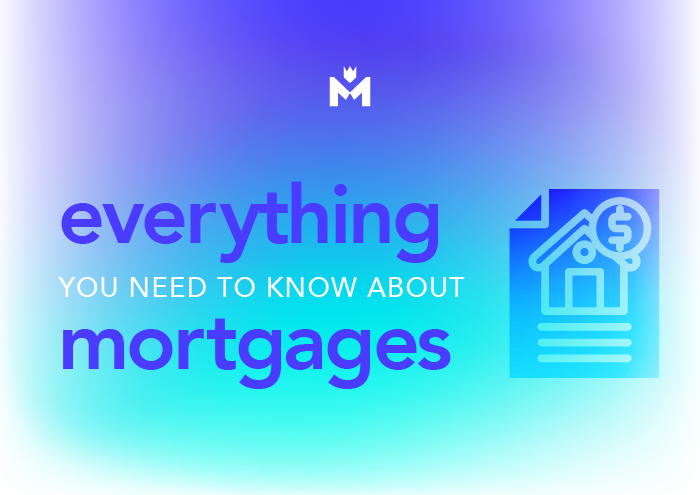Mortgages are a topic smothering headlines across the world, and in particular New Zealand. We’re an economy dominated heavily by the housing market. This is steadily changing and diversifying as our population grows and our investments change – for example, bringing in KiwiSaver and removing the inaccessibility to the sharemarket through platforms like Sharesies and Hatch.
Regardless, we think it’s best to be informed of everything around mortgages without the media frenzy or speculating journalists.
Can you negotiate an interest rate on an existing mortgage?
Absolutely! We always recommend you go to a financial adviser as they will do most of the legwork for you and ensure you get the best rate for you that suits your lifestyle. Mortgage interest rates are subject to change as and when the banks or other lenders feel they want to, so if you see something sharp, or are wanting to make a shift in your lifestyle, reach out to someone who knows where the best options are for you. As New Zealand is a strong housing market economy, banks are aggressively competitive when it comes to rates, rate prices, and making sure they get your business using incentives like cashbacks.
This doesn’t include the additional diversity of a second-tier lender either, which are growing in popularity for mortgages and home loans. Second-tier lenders are great for people that are self-employed, as they will have different criteria applied to people who are PAYE employees (as in paid on a schedule).
How to manage your mortgage?
It always starts with a budget. We promise, budgeting provides you with more knowledge than restriction, and even though a lot of people prefer to stick their head in the sand, you’ll find empowerment when you have financial freedom. According to Sorted’s guide, review your mortgage consistently to make sure what you have locked in with the lender works for you still. Check out when your fixed rate loan is due to expire, or when a big life change is looming, like a new job or new family member (this includes pets as they can be expensive)!
When you have an asset as large as a house, staying on top of what goes into the account and what goes out will make the biggest difference. It’s not just the mortgage you’re paying off, it’s rates, any insurances, and expenses on top of that.
How to find a good deal on your mortgage?
Go to a financial adviser or a mortgage broker. They’ll have the widest range of understanding and knowledge across all lenders and deal with a number of them every day. You are under no obligation to go with the bank you have for your day to day spending.
It’s always worth shopping around and seeing what else is available for you, however this is a time consuming task!
What do the different mortgage terms mean?
Table loan is the most common type of home loan, and you can choose up to 30 years (with most lenders). This means that the early repayments you make back to the lender is mostly interest (which is why an interest rate is so important). Towards the end of the loan, you’re paying back the principal (the initial amount borrowed).
Revolving credit loans are essentially a giant overdraft and require a lot of self discipline and organisation. This is where your pay would go in, bills are paid out when they’re due, and you keep the loan as low as possible. Typically for these loans you pay less interest as lenders calculate the interest daily. This type of loan allows lump-sum repayments, which is great if you have come into a lump sum of money.
Offset loans can ultimately reduce the amount of interest you pay, as you can link your loan to any savings or everyday accounts you already have. You take your mortgage, less your savings, and have what you need to pay interest on. Our example here would be if someone with a $100,000 mortgage and $20,000 in savings would only need to pay interest on $80,000.
Interest only loans are where you pay for the interest-only part of the repayments, not the principal (the rest of the loan). This option works great for a couple of years, and is super helpful if you are on a single income or have an investment property.
How much can I borrow against my house?
These lending rules and criteria change often. If this is a home you live in (you are what is called ‘owner occupied’) you can borrow up to 80% LVR. As we said in our First Home Buyer Survival Guide, an LVR is the amount of your loan compared to the value of your property. This is designed so you can have the best opportunity to afford your mortgage repayments, and if you can’t, the bank can sell your house and have mitigated any shift of total sale value from when you purchased to when you sell.
Naturally it also depends on what you’re buying from, from an investment property or a rental, to taking out a loan to get those much needed reno’s done.
What does a mortgage broker do?
In their most basic form, a mortgage broker will look at your financial situation, provide recommendations, see what you can do to help structure your mortgage loan to best suit your needs. They are a middle-man between you and a bank or a mortgage lender and will have a wide knowledge of lots of different lenders, making sure you get the best deal. Mortgage brokers also do a lot of the heavy lifting for you through managing the application and timelines, as well as the credit checkers at the lender.
All information in this blog is provided as guidance and should not be taken as personalised advice. If you have any questions, please reach out to a financial adviser to get information and financial advice tailored to you.




